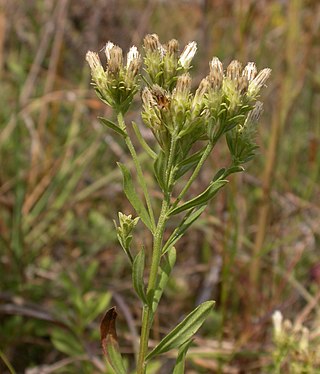Related Research Articles

The United States Senate Committee on Environment and Public Works is responsible for legislation and oversight of the natural and built environment and for studying matters concerning environmental protection and resource conservation and utilitization.

The Senate Committee on Rules and Administration, also called the Senate Rules and Administration Committee, is responsible for the rules of the United States Senate, administration of congressional buildings, and with credentials and qualifications of members of the Senate, including responsibility for contested elections. The committee is not as powerful as its House counterpart, the House Committee on Rules, as it does not set the terms of debate for individual legislative proposals, since the Senate has a tradition of open debate. Some members of the committee are also ex officio members of the Joint Committee on the Library and the Joint Committee on Printing.
This committee of the United States Senate was created November 4, 1807. On January 2, 1947, its functions were transferred to the Committee on Rules and Administration.

United States Senate Committee on Civil Service is a defunct committee of the United States Senate.
The United States Senate Committee on Claims was among the first standing committees established in the Senate. It dealt generally with issues related to private bills and petitions. After reforms in the 1880s that created judicial and administrative remedies for petitioners, it declined in importance, and was abolished in 1947.
The United States Senate Committee on Cuban Relations was formed following the Spanish–American War, in 1899. The Committee was terminated, along with many others, in 1921.
The U.S. Senate Committee on Public Buildings and Grounds was a committee of the United States Senate from 1883 until 1946. It was preceded by the United States Congress Joint Committee on Public Buildings and Grounds and succeeded by the United States Senate Committee on Public Works.
The United States Senate Committee on Rules was a Congressional committee, later absorbed into the United States Senate Committee on Rules and Administration.
The Senate Committee on Privileges and Elections was a committee of the United States Senate.
Elections for the United States House of Representatives were held on November 7, 2006, with all of the 435 seats in the House up for election. This article discusses predictions for outcome of House races as a whole. Individual races that were notable are discussed in detail at United States House elections, 2006; that article also has information on the results of the election.

The following outline is provided as an overview of and topical guide to the United States:

Sericocarpus is a genus of North American plants in the tribe Astereae within the family Asteraceae. Whitetop aster is a common name for the genus.
The Republican Governance Group, originally the Tuesday Lunch Bunch and then the Tuesday Group until 2020, is a group of moderate Republicans in the United States House of Representatives. It was founded in 1994 in the wake of the Republican takeover of the House; the Republican House caucus came to be dominated by conservatives. It is considered a center to center-right congressional caucus, with its members primarily from competitive House districts.

The Innovation Act of the 113th Congress is a bill that would change the rules and regulations surrounding patent infringement lawsuits in an attempt to reduce patent lawsuits.

The Amash–Conyers Amendment was a proposal to end the "NSA's blanket collection of Americans' telephone records", sponsored by Justin Amash and John Conyers in the US House of Representatives. The measure was voted down, 217 to 205.

The Congressional Arts Caucus is a registered Congressional Member Organization for the US House of Representatives in the 115th Congress.

Andrew Johnson became the first president of the United States to be impeached by the United States House of Representatives on February 24, 1868 after he acted to dismiss Edwin Stanton as secretary of war in disregard for the Tenure of Office Act.
References
- Senate Historian's Office
- Records of the Committee on Patents and the Patent Office, 1837-69 and the Committee on Patents, 1869-1946, Records of the Committee on the Judiciary and Related Committees, 1816–1968, Guide to the Records of the U.S. House of Representatives at the National Archives, 1789-1989 (Record Group 46), National Archives and Records Administration